Ethnographic Expedition 2008. Part IV. NovosibirskMapAugust 1, 2008 Not much has changed here since my previous visits. The city has no character whatsoever; there aren’t even any cozy public gardens, much less interesting neighborhoods. The only thing that’s worthy of attention, approval, praise and transplantation to every other city in Russia is the safety islands, which aren’t just painted onto the asphalt but consist of actual concrete formations in the middle of the road (like in Switzerland). The islands also have shields with red and white stripes on both sides, topped with “keep right” signs. 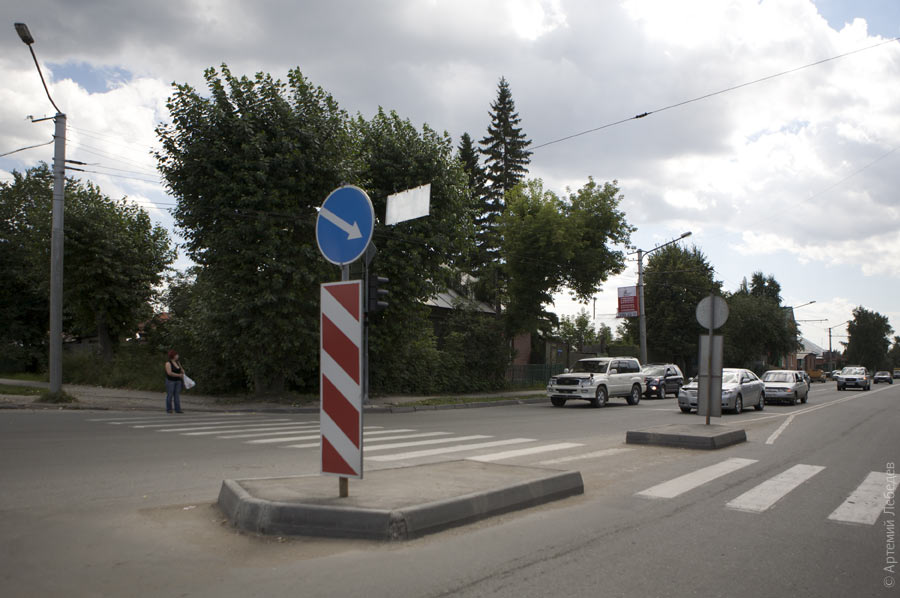 A solid waste landfill sits practically within city limits. There’s lots of trash here. Tons of trash. Mountains of trash. Trash as far as the eye can see. Milk cartons, plastic bottles, old phones, cameras, toys, potato peels, unfinished containers of yogurt—everything that people toss in the garbage ends up here. 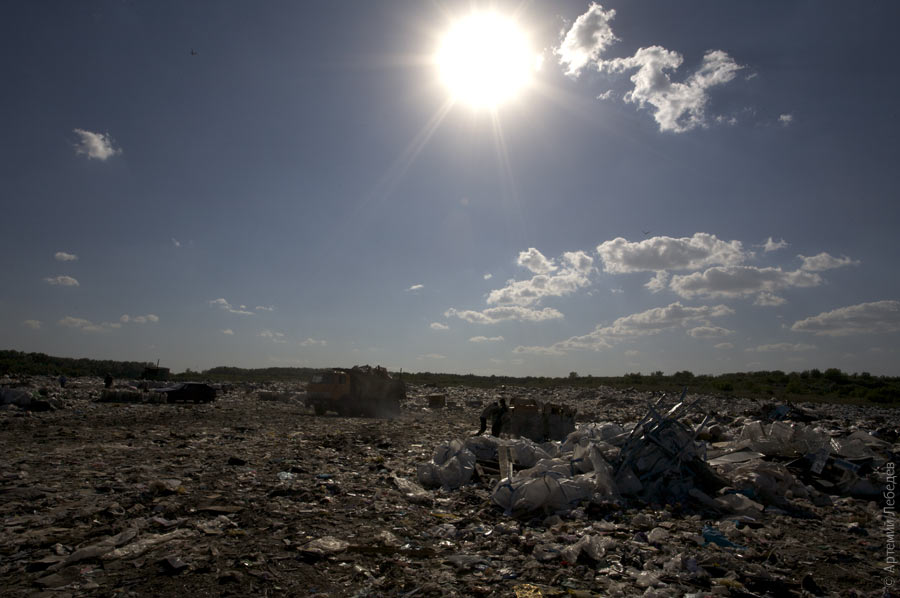 The landfill workers are Tajiks. Their job is simple: to sort the trash by hand all day long. Glass to one side, plastic to another, aluminum to a third. 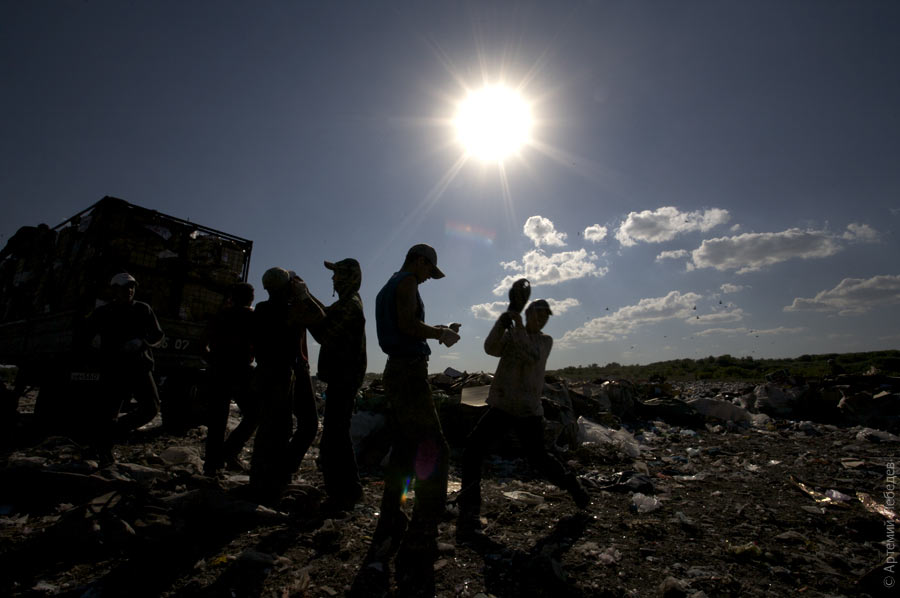 Garbage trucks pull in every few minutes to drop their load and head back for a new portion. A garbage truck driver—not the most prestigious profession by city standards—looks like a king compared to the Tajiks. He operates equipment and doesn’t dig through garbage. 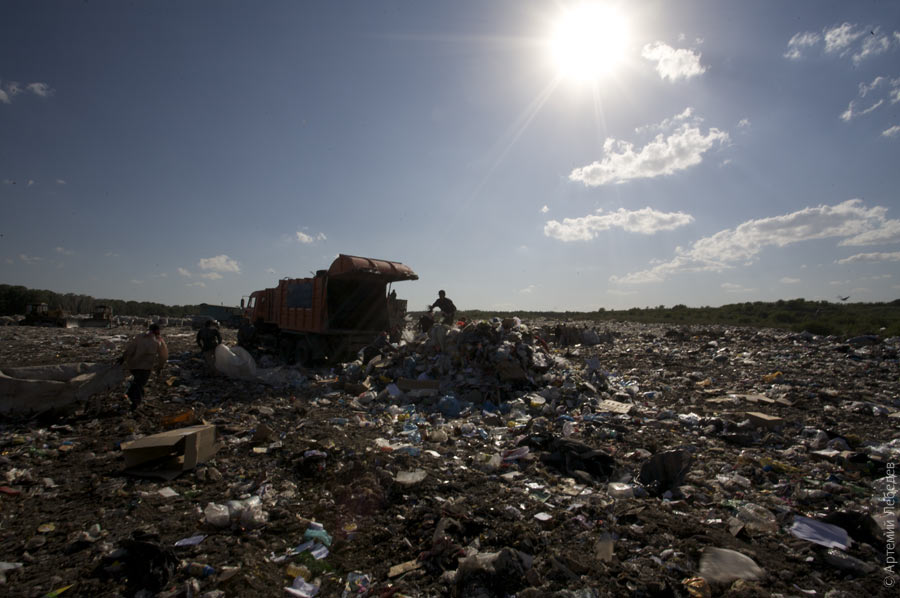 Valuable garbage is bagged, garbage garbage turns into spoil heaps stretching all the way to the horizon. 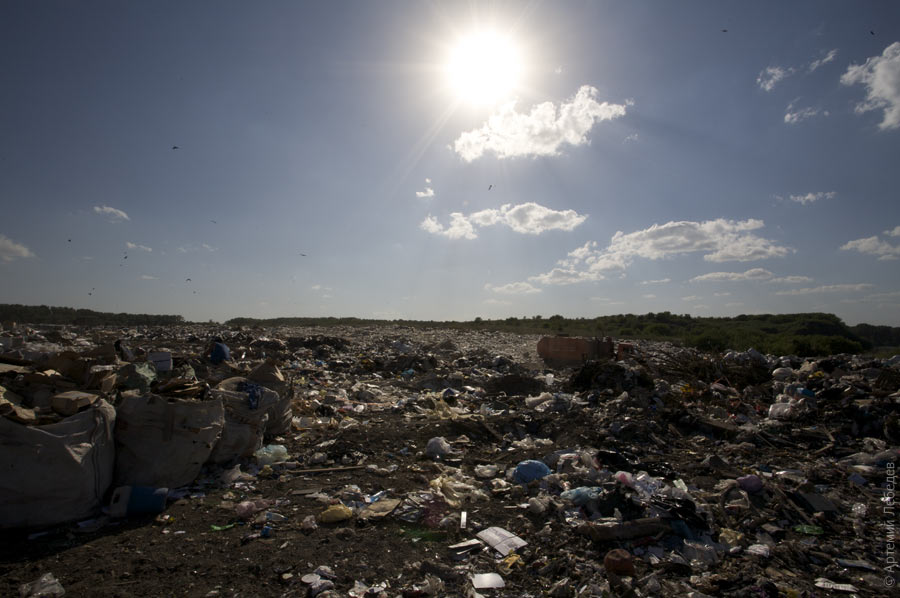 A garbage truck drives up and quickly dumps its contents. The Tajiks are standing at the ready: as soon as the last bit falls out of the truck, they pounce on the fresh pile and begin to energetically sort it. 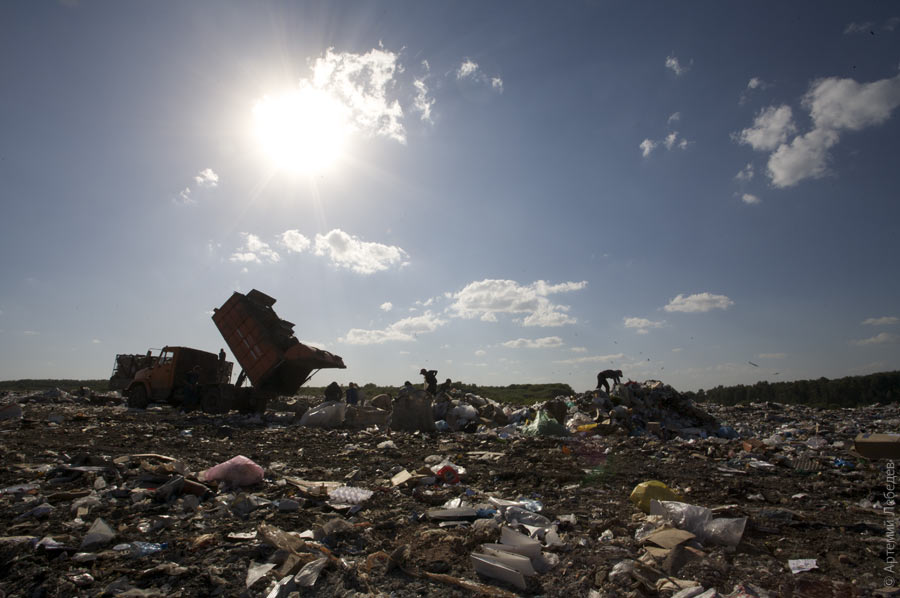 Only here did I understand the full importance of waste segregation, which is a common practice in Europe. Almost all the trash cans there have a specialized function: one for paper, one for cans. Sure, you can throw glass in the paper bin, no one’s going to punish you for it. But most people will put their trash in the right section, which makes subsequent sorting significantly easier. If schools organized field trips to such landfills, children would have an entirely different attitude towards garbage (and attitudes towards Tajiks should be changed somewhere other than a landfill). 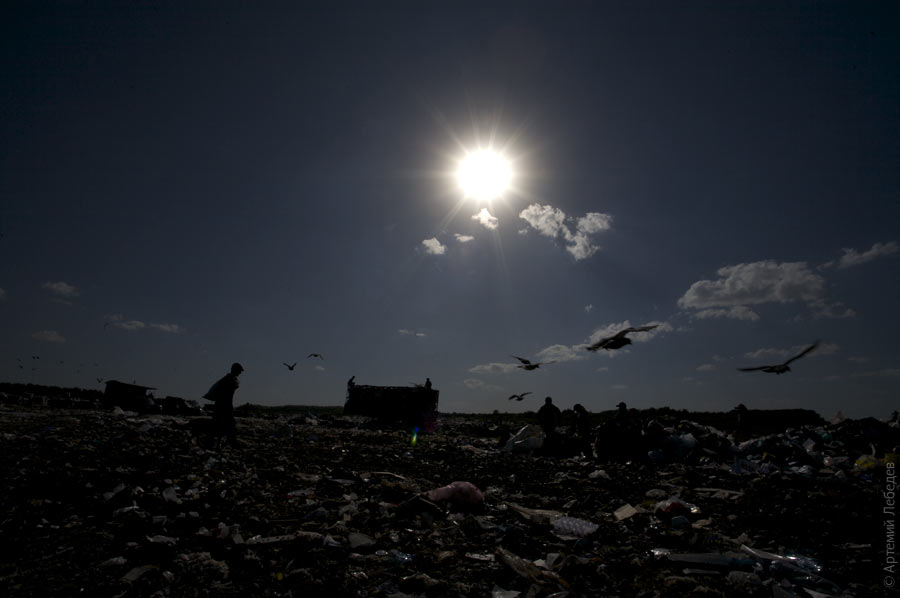 A full solar eclipse is a fairly rare occurrence. The diameter of the moon becomes slightly larger than the diameter of the sun. The moon is gradually coming in from the right, where the sky is already getting darker. 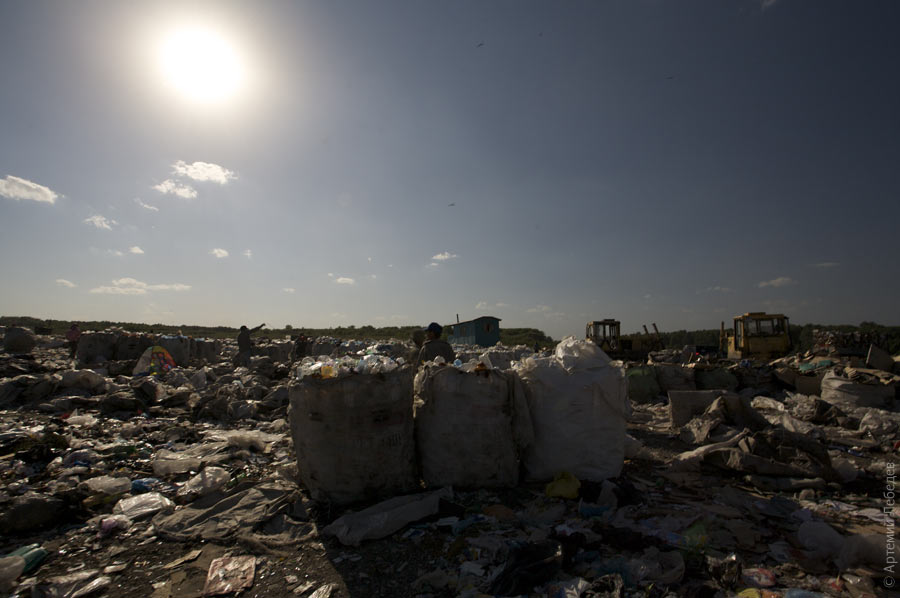 You have to look at the sun through special super-dark glasses. With the naked eye, you won’t be able to see that the solar disc is almost fully obscured until the very last second. 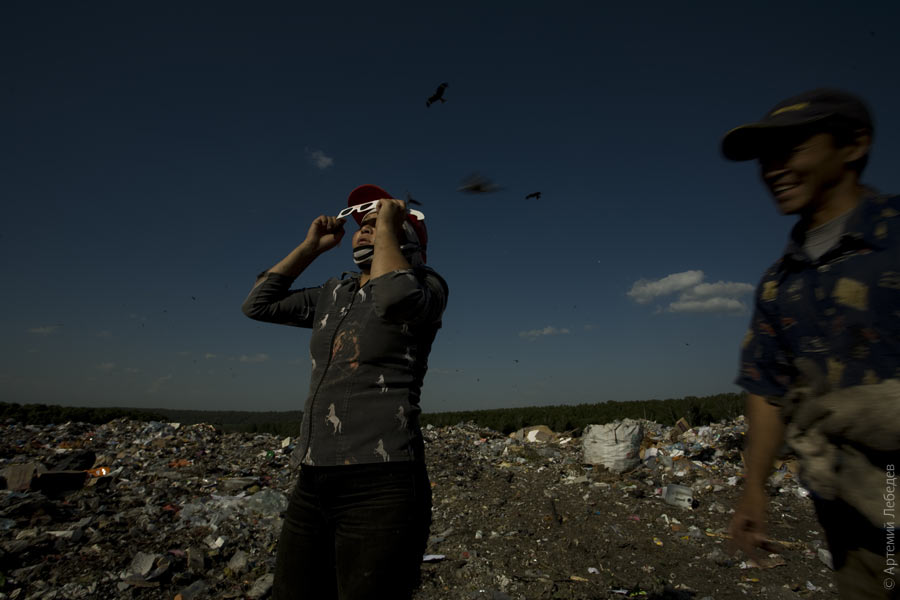 The sun is still blindingly bright, and the shadow on the right is becoming more and more pronounced. 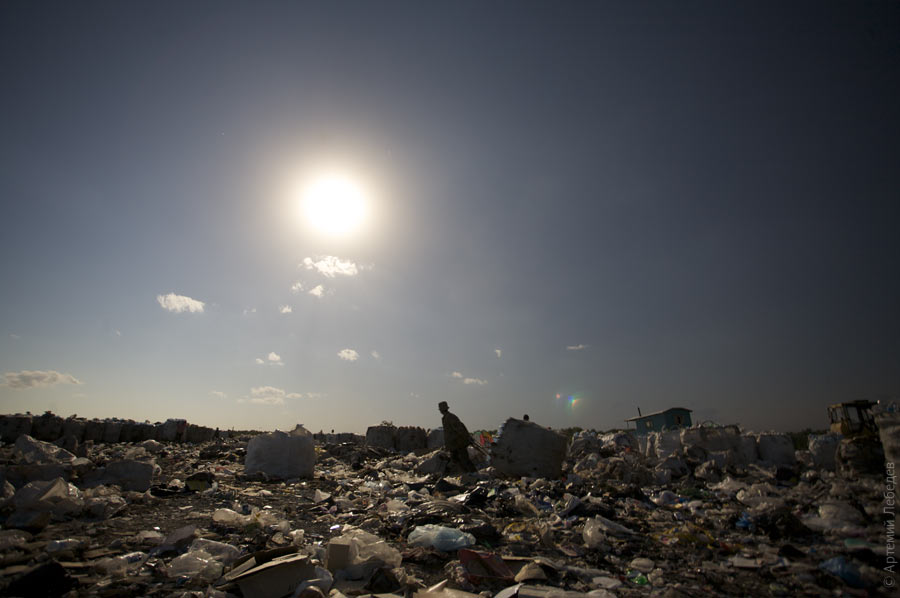 And suddenly a darkness unlike any other sets in—it resembles twilight, but with sharp shadows. Birds stop flying. The air cools. The odor of the dump becomes less sharp. For two minutes and twenty-two seconds, the Tajiks abandon the garbage and look at the sky. The sun has disappeared from the sky. 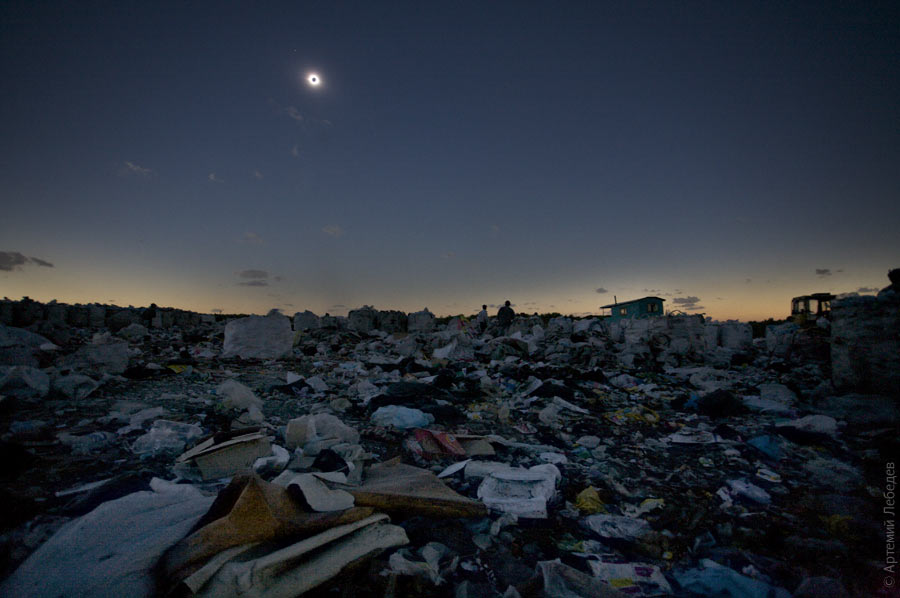 In one word: it’s breathtaking. It’s the most visually impressive thing I’ve ever experienced in my life. 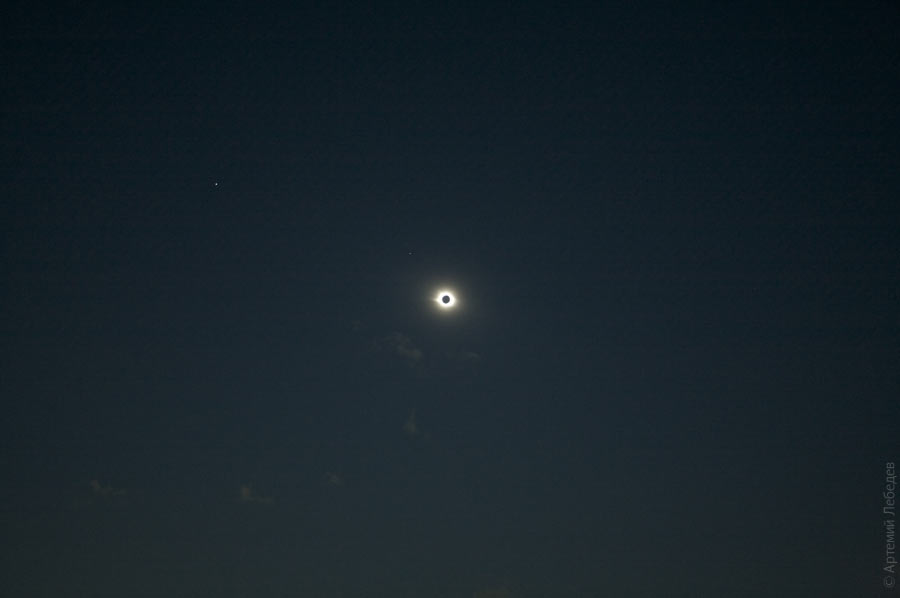 The shadow slips to the left; dawn approaches rapidly on the right. Two minutes is very short. But even if the eclipse had lasted only five seconds, it would have been worth coming from the other end of the world to see it. 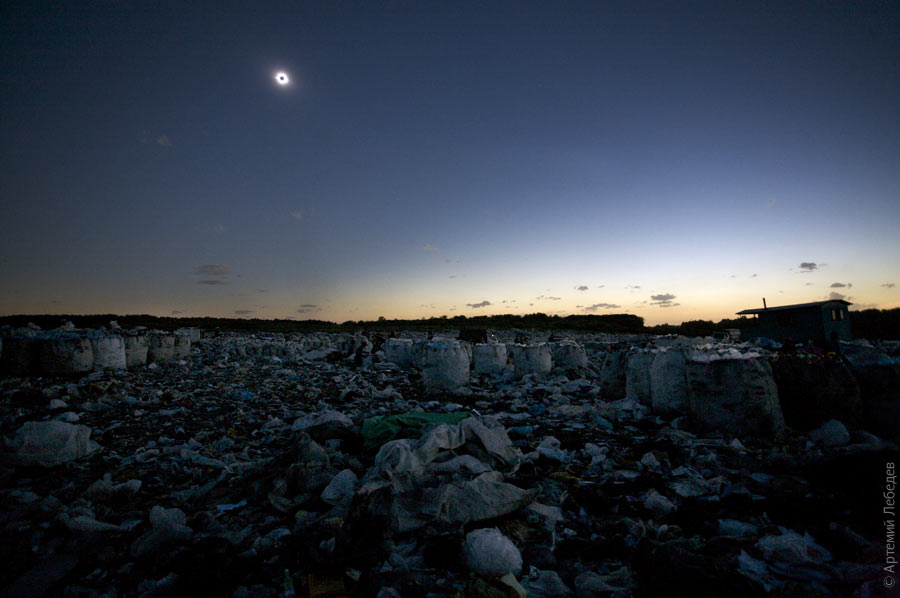 The sun instantly begins to blind again. Over the course of nearly an hour, the light will gradually be returning to normal. 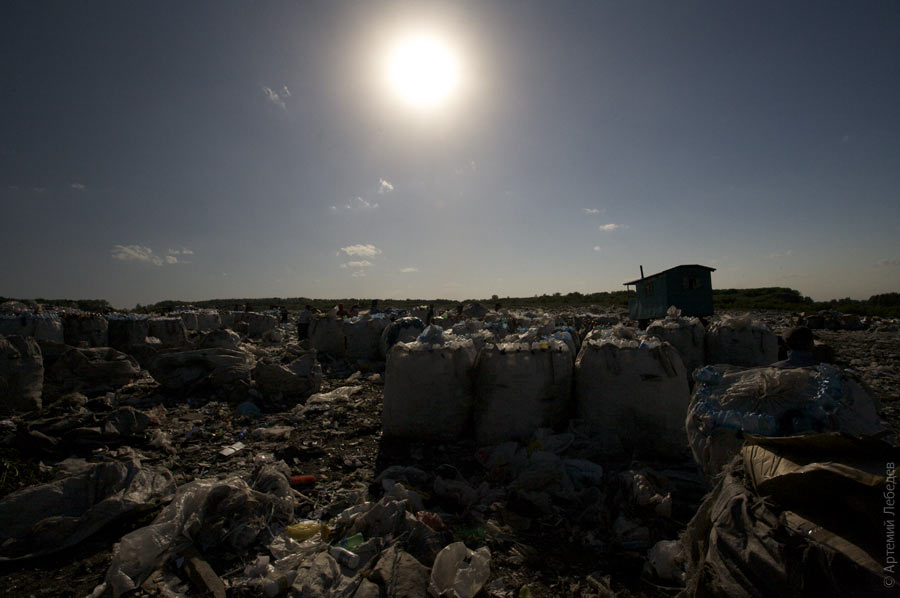 Garbage trucks continue to arrive. 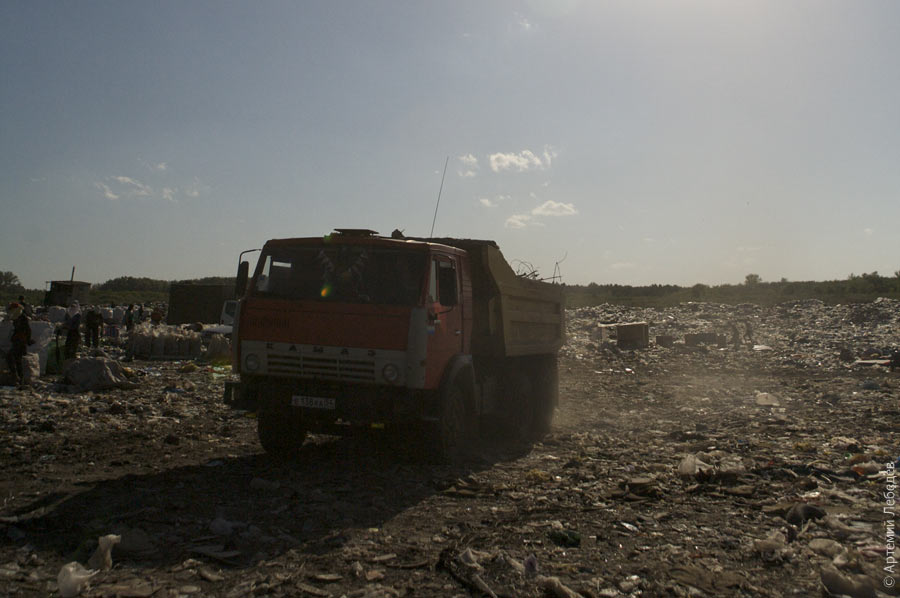 |